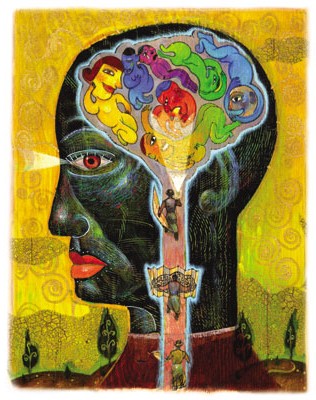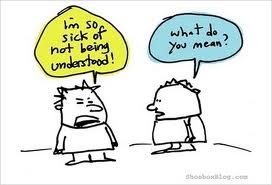
Thanksgiving is just over a week away, and the December holidays are on the horizon. Some say: “It’s the most wonderful time of the year!” Or is it? For many of us, the holiday visits back home to family members are something to be dreaded. While we look forward to the pleasure of celebrating these festive times, there is also the memory of past conflicts and the very real possibility of new confrontations that we find ourselves anxious to avoid. We can tell ourselves that this is the year we will not get stressed out or upset with visits to or from our families. This is what we strive for yet, most often, not how things turn out.
Difficult Family Dynamics
According to Dr. Jeffrey Fine, Ph.D., director of the American Foundation for Conscious Parenting, our families can be “a breeding ground for repressed resentments and hostilities left over from childhood.” We might anticipate that once we have grown up and moved away to create our own lives and families these feelings would diminish, but, as many of us experience, unfortunately they do not.
One potential solution to transforming the holidays from stressful to joyful is the application of identified communication skills that have been researched and shown to facilitate changing difficult relationships. Behavioral Engagement is a 12-step set of communication skills that has been the subject of hospital pilot studies over a 2-year period.
The outcomes of these pilots showed the participants experienced a significant improvement in their relational outlook and attitude after interacting with the communication skills model. Originally developed to enhance relationships between whole health oriented doctors, nurses and patients, the model was also applied and studied with business and family relationships.
James Prochaska, Ph.D., renowned researcher on behavior change and author of Change for Good — the Six Stages of Transtheoretical Change says of Behavioral Engagement: “The process of Behavioral Engagement has the potential to transform relationships that are suffering or struggling to ones that are thriving!”
Generally, one of the most recommended approaches to staving off holiday conflicts is to “try and accept family members or friends as they are.” Unfortunately, this good intention can be easily sidelined without specific communications skills that can help keep us on track.
Easy 12-Step Model
The 12-Step Model of Behavioral Engagement offers specific, easy-to-learn communication skills that have been proven effective in changing conflicted relationships into compatible relationships based on the understanding that we all want to be valued, respected and listened to. The steps are based on physical, psychological, hormonal and neurological aspects of human relationships and communication. They start with the understanding that while we cannot change others’ behavior we can change our own behavior in how we relate to others, which can result in a transformative outcome for all participants.

We can do so by using specific, simple communication skills and following the steps that have been shown to be effective in creating greater receptivity and generating more positive emotions in relationships that have previously been conflicted or stressful.
If you have experienced or are anticipating challenging relationships during the holidays, you may wish to apply these easy steps and see if they can assist you in having happier and even healthier holidays.
Step One: Be physically comfortable when communicating. This removes discomfort that can distract from the conversation. Distractions reduce your attention, focus on the person you are speaking with, and decrease the conversational rapport and receptivity.
Step Two: Understand what you want. Our intentions are powerful behavior motivators. Understanding what we want from an exchange or a relationship can assist us in communicating more clearly our thoughts and feelings, inviting greater understanding and intimacy. Example: “I really want to understand what you are upset about.”
Step Three: Centered body posture. Uncross arms and legs and present open, receptive body language. To send the message that you are respecting the conversation and giving the other person your fully attention, do not play with your watch, glasses, hair or continually look away from the person you are speaking with. Committing to being focused is an important element in communication and sends the message that you care. We can all feel when someone values being with or speaking to us.
Step Four : Sustained, soft eye contact has been shown to stimulate oxytocin, which opens emotional centers of the brain and enhances trust and feelings of love and intimacy.
Step Five : Respectful inquiry. Asking rather than telling or directing and using “I” statements rather than “you” statements creates a safe, non-judgmental environment for the other person to communicate openly.
Step Six: Responsiveness. Using appropriate responses, such as facial expressions, smiling, head nodding and so forth, indicates you are listening and understanding what the other is saying without interrupting or interjecting. This acknowledges the value you have for their communication.
Step Seven: Pauses between responses. Instead of immediately speaking as soon as the other person is finished, allowing for appropriate pauses when someone has shared a thought or feeling with you creates for them the experience that they are being respectfully listened to, and that you are truly present to them.
Step Eight: Non-judgment. By not allowing yourself to focus on your unspoken mental and emotional judgments you eliminate the unconscious communication that is sent through subtle and gross body language. Unconscious, non-verbal body language is something most of us pick up on and they can make or break the communication.
Step Nine: Leave the ego at the door. Eliminate the push-pull or power struggle of previous relationship interactions by letting go of taking control of the communication and allow for equity between you and the other individual.
Step Ten: Re-centering when you start to lose focus. Mentally repeating simple words you identify as prompts to get you back to the focus of the conversation is a quick and effective way to get yourself re-centered in the exchange. Example: “Back to focus” or “Get centered.”
Step Eleven: Collaborative mindset. Working toward having a win-win outcome eliminates conflict and improves the quality of the relationship in both the short term and the long term.
Step Twelve: Sacredness of relationship. Sacredness means “worthy of respect.” When we are aware of appropriate verbal and behavioral boundaries within our communications, we hold the other person in high esteem and create fulfilling, lasting relationships.
When dealing with family holiday conflicts it can be helpful for us to try simple, proven communications skills but also to reflect on the wisdom of the question: “Would you rather be loved than be right?” Often times when we elect love over being in control or being right relationships shift for the better.
For more whole health discussions like this, listen to my weekly radio show Living Above The Drama available on iHeartRadio.







 The approximate 20% of non-pet households are for the most part made up of individuals with allergies, who live in apartments or living environments that do not welcome pets and those who have no time left in their over-scheduled lives to care for a pet. It seems people of all ages, ranging from infants to very elderly enjoy and welcome the company of pets. The presence of pets is so population today, that nursing facilities have therapy pets at the facility on a regular basis. The one downside to this practice is that sometimes the residents start arguing and competing over who gets to keep the cat, dog or bird with them for the day.
The approximate 20% of non-pet households are for the most part made up of individuals with allergies, who live in apartments or living environments that do not welcome pets and those who have no time left in their over-scheduled lives to care for a pet. It seems people of all ages, ranging from infants to very elderly enjoy and welcome the company of pets. The presence of pets is so population today, that nursing facilities have therapy pets at the facility on a regular basis. The one downside to this practice is that sometimes the residents start arguing and competing over who gets to keep the cat, dog or bird with them for the day.



